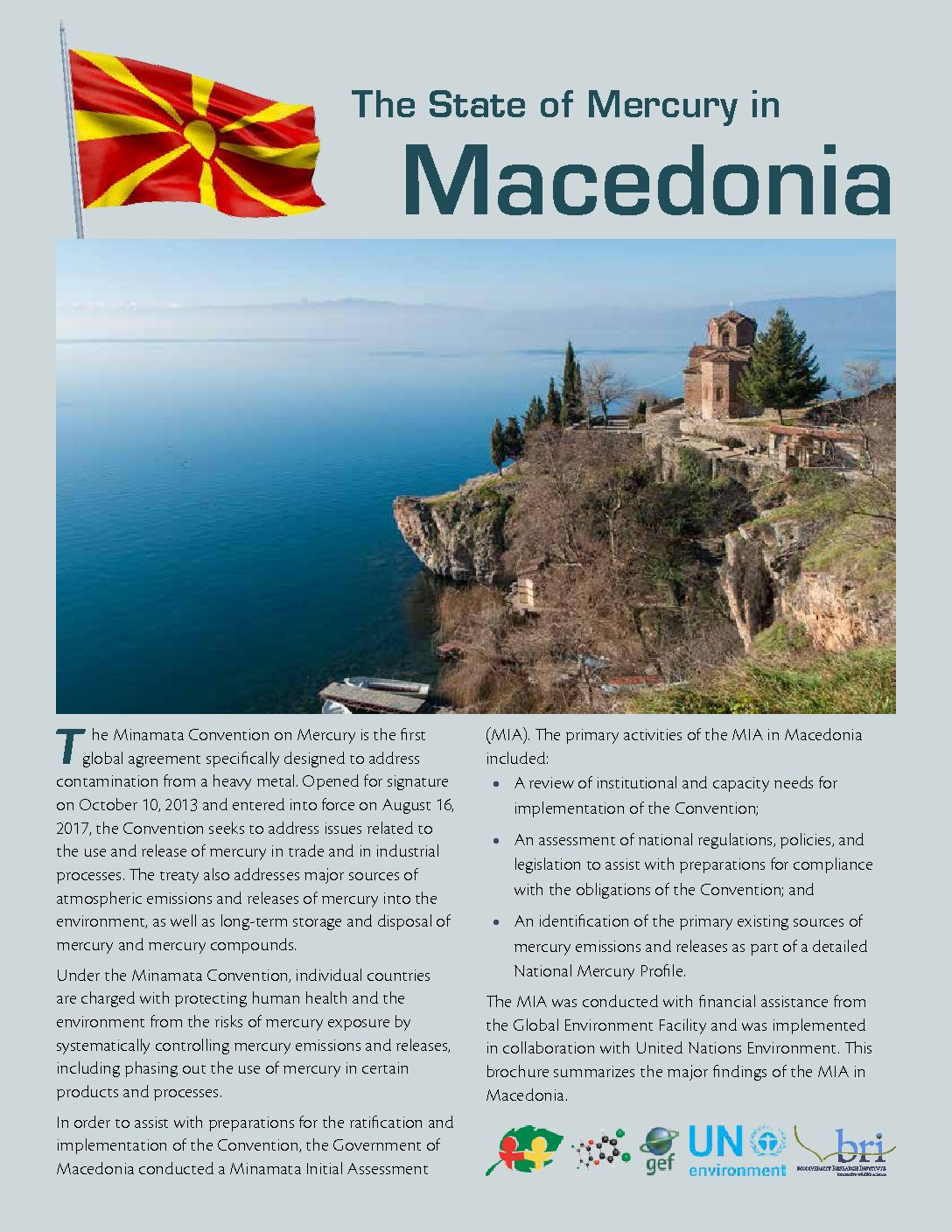Minamata Initial Assessments in Macedonia
As International Technical Experts, BRI is assisting the government of Macedonia in meeting requirements outlined by the Minamata Convention to reduce mercury in the environment by conducting a Minamata Initial Assessment. These activities will complement efforts by Macedonia to significantly reduce the exposure of mercury to humans and the environment.
Formal Capacity: International Technical Expert
BRI Project Lead: Amy Sauer
Funding/Implementing Agency: GEF/UN Environment
Executing Agency: Basel Convention Regional Centre for Central Europe (Slovakia)
The State of Mercury in Macedonia

The Minamata Convention on Mercury opened for signature in October 2013 and entered into force in August 2017. To assist with preparations for the ratification and implementation of the Convention, the government of Macedonia conducted a Minamata Initial Assessment (MIA) to quantitatively and comparatively determine the extent of local mercury pollution. Some findings from the MIA and recommendations from the Macedonia mercury team can be found in this brochure.
Country Profile

- Population: 2.1 million (World Bank 2013)
- Surface Area: 25,713 sq km
- Capital City: Skopje
- Official Language: Macedonian
- Fish Production: 1,181 tons (FAO 2001)
- UN Membership Date: April 8, 1993
The Republic of Macedonia (Former Yugoslav Republic of Macedonia) is a landlocked Balcan nation in Southeast Europe bordered by Albania, Kosovo, Serbia, Bulgaria, and Greece. It is geographically defined by the Vardar River valley and its surrounding mountain ranges, the Sar Mountains and Osogovo. Macedonia is known for its ancient towns, rugged landscape, and large lakes such as Lake Ohrid, pictured above.


